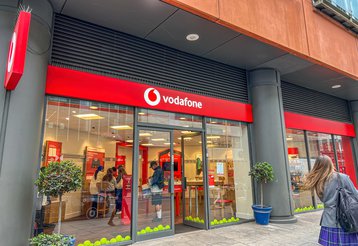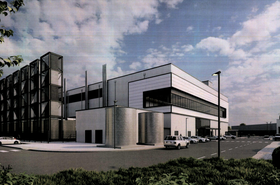Vodafone has switched on its Standalone 5G (SA 5G) network in some parts of the country, claiming to be the first UK operator to do so in the process.
Dubbed 'Ultra 5G', the service has been switched on in London, Manchester, Glasgow, and Cardiff initially.
It will be rolled out to more cities in the coming months, confirmed the operator.
Ultra 5G is effectively Standalone 5G, meaning it's not reliant on older mobile generations and solely uses a 5G core network.
Non-Standalone 5G on the other hand, is the first implementation of the 5G network architecture, and is designed to be deployed on top of an existing 4G LTE network.
Vodafone's launch of the service is no surprise, as the operator has pushed hard in recent months in developing the technology, which is largely seen as "real 5G."
Notably, the operator worked with TV company ITN to broadcast the Coronation of His Majesty King Charles III using a public 5G Standalone (SA) network and network slicing.
Network slicing allows telecom operators to create separate and isolated networks for different use cases, while the slice can be configured differently. This method is underpinned by Standalone 5G.
The launch of the service comes a week after the operator announced its £15 billion ($19bn) merger agreement with CK Hutchison's Three UK. The pair have committed to spending £11bn ($14bn) on future network investment upgrades.
It's not just Vodafone pushing the case for Standalone 5G in the UK, as the government wants Standalone 5G to be available in all populated areas of the country by the end of the decade.
"Our Wireless Infrastructure Strategy sets out our plan to ensure everyone, no matter where they live, can reap the benefits of improved connectivity. We are doing this by ensuring all populated areas in the UK will be served by what I call ‘5G-plus’ technology by 2030," said Michelle Donelan MP, Secretary of State for Science, Innovation, and Technology back in April.
Vodafone states that its Standalone 5G service provides faster speeds, and greater coverage, and has improved connection in busier locations, such as sporting events.
"We’re excited about what the future holds for our customers. 5G Standalone is a truly transformational technology that can have an impact on industry and businesses, especially when blended with IoT and cloud."
Standalone 5G is expected to drive use cases such as remote-assisted surgery and drone delivery of medication and medical assets more efficiently than traditional couriers.






